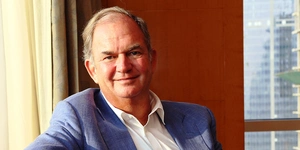Mining is a controversial business. Scouring the bowels of the earth for metals, rare-earth elements, and fossil fuels is likely to result in environmental degradation and pollution, cause health hazards for residents, and cause run-ins with the regulators.
Yet, even by the industry standard, London-listed Vedanta Resources--a diversified natural resources company with a presence across South Africa, Namibia, Australia, Ireland, and India--courts controversy often. It has been accused of causing environmental damage in its metal and mining projects, payment defaults and human rights violations, and more. And in most cases, the company’s defence is the same: It is a victim of a foreign conspiracy.
The company’s initial response to protesters demanding the closure of the copper smelter complex run by Sterlite Industries, a Vedanta subsidiary, in Tuticorin, Tamil Nadu, for allegedly violating environmental laws and causing health hazards, wasn’t different. Vedanta’s billionaire promoter Anil Agarwal, who holds a 71% stake in the company, tweeted that “his company was the victim of a foreign conspiracy”. He did not name any specific country or company.
On the 100th day of the protest, 12 people died in police firing. Two days later, on May 24, Vedanta finally came out with a statement regretting the incident and said that it was working with the “authorities to ensure the safety of its employees, facilities and surrounding communities”.
Earlier, when a court stopped Vedanta from operating an iron ore mine in Goa, Agarwal said: “Certain vested interests will prefer India to remain import dependent and use our country as their market, making India spend hard-earned foreign exchange and lose millions of jobs.’’
Agarwal’s cries of conspiracy do not hold much water. There is no smoking gun, nor the sound of a gunshot. In fact, it is an attempt to cover up flaws. The Tuticorin plant has been shut since March 27, and will remain shut until June 6, says a Reuters report. Neither a protester nor a foreign actor is causing this; the plant’s application to renew its license to operate the copper smelter plant was rejected by the Tamil Nadu Pollution Board. On May 23, a day after the police firing, the Madras High Court stopped the construction of a new copper smelter by Sterlite industries.
And this is a recurring pattern. Earlier, when a court stopped Vedanta from operating an iron ore mine in Goa, Agarwal said: “Certain vested interests will prefer India to remain import dependent and use our country as their market, making India spend hard-earned foreign exchange and lose millions of jobs.’’
Similarly, when his plan to mine bauxite from the Niyamgiri hills in Odisha to supply a nearby alumina refinery in Lanjigarh was halted by India’s environment ministry in 2010, he told Fortune India: “Once we are allowed to mine bauxite from the hill, we will not only become the world’s largest but also the lowest-cost aluminium producer in the world. This will bring down global aluminium prices which many of the top global producers may not really be happy about. Otherwise, why should there be so much hue and cry about a place and people that no one bothered about for so long.’’
The statement ignores the fact that it was the Dongria Kondh tribals who have been largely protesting against the Niyamgiri hills project. The Dongria Kondh tribe is classified in India as a “particularly vulnerable tribal group”, thereby giving it enhanced right over forests under the Forest Rights Act. Even the Saxena Committee set up by the Ministry of Environment and Forests to look into the issue held the company guilty of blatantly flouting the tribal rights.
The controversy made socially responsible investors (SRIs) in Vedanta exit the company. The Church of England, the Joseph Rowntree Charitable Trust, Norwegian Government Pension Fund, and Dutch pension manager PGGM Investments sold their shares in the company between 2007 and 2010.
“There was a disconnect between what Vedanta was saying and how their actions were impacting the community around their refinery,” said Edward Mason, secretary to the Church of England Ethical Investment Advisory Group, after his visit to Lanjigarh in November 2009 to assess the situation. The Ethical Investment Advisory Group advised disinvestment of £3.8 million in February 2010.
Vedanta no longer has any SRI, but its share price has fallen on the London Stock Exchange since the police firing. And with governments and regulators tightening the norms on environmental pollution and greenhouse emissions, the real answer to such disruptions lies in using the latest technology to meet the stringent norms.










Leave a Comment
Your email address will not be published. Required field are marked*